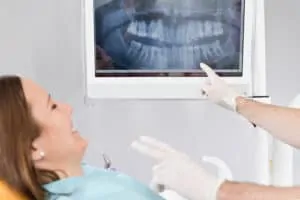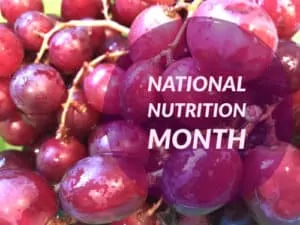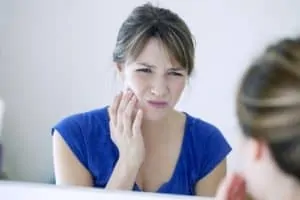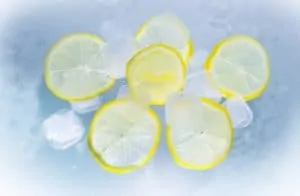General Dentistry

Best Summertime Snacks for Teeth
- Veggies
Yummy raw, crunchy vegetables aren’t only great for your body, they’re fantastic for your teeth, too. Snacks like broccoli, carrots, celery, and peppers gently scrub away plaque buildup and give your teeth a little bit of a cleaning. This helps protect your smile against decay and can even help freshen breath.
- Fruits
Veggies sweeter cousin fruits are also a great snack option. Not only are many fruits fresh and in season this time of the year, but they can also help clean your teeth and rub away plaque. Kiwis, for example, have calcium which is always great for your bones and, of course, your teeth. Another fan favorite is raw apples.
- Cheese
Another tasty snack that can help remove plaque is cheese. But this yummy food is also loaded with calcium and vitamin D. The duo of calcium and vitamin D is a powerhouse that works together to build super strong bones and teeth. Cheese can also increase saliva production, which will help rinse away bacteria and sugar.
Summer Snacks That Can Harm Teeth
- Condiments
Dressings, sauces, and dips can seem harmless enough but the truth is these condiments are a sneaky danger. BBQ sauce and ketchup, for example, contain a lot of sugar and are acidic — both of which are bad for teeth.
- Soda
It’s well-known that your dentist in Sparks isn’t a huge fan of soda, and with good reason. Soda is packed with tons of sugar which essentially coats your teeth when you drink it. Sugar is one of your smile’s natural enemies as it can feed bacteria, wear away enamel, and increase the risk of decay.
- Alcohol
Drinking alcohol can greatly increase the risk of gum disease and decay. Certain types of alcohol can also lead to tooth discoloration. Lastly, alcohol can cause dry mouth, further putting teeth in danger of decay.
At our dental office in Sparks, we’re not here to tell you to avoid these summer treats, we simply recommend enjoying them in moderation. Additionally, it’s always wise to drink plenty of water after eating or drinking alcohol to help wash away sugar or food particles.

What Exactly is A Dental X-Ray?
X-rays (also referred to as radiographs) can be 2D or 3D images that quickly become an important part of how your Sparks dentist prepares an accurate treatment plan. The images give us an idea of what’s going on inside your mouth, highlighting your jaw bone health and tooth structure that lies beneath your gums and enamel. It gives us the added ability to find out if something is going on inside your mouth or teeth that’s not 100 percent visible to the naked eye.
With the advancements in dental technology, there are many different types of x-rays available on both traditional film and digitally. Most dental offices have made the switch to digital x-rays because they tend to emit nearly 80 percent less radiation than film x-rays. Many dentists find that digital x-rays free up appointment times and are easy to save to a patient’s file for future reference and use.
Intraoral and Extraoral: The Two Main Categories of X-Rays
Besides having the ability to be either taken on film or stored digitally, x-rays are divided down into two other categories of either being intraoral or extraoral. How it breaks down is pretty straightforward, and it goes something like this:
Intraoral x-rays – involve any imaging taken from INSIDE your mouth
Extraoral x-rays – involve any imaging taken from OUTSIDE your mouth
Intraoral x-rays give us the chance to see really minute or fine details of both your supporting bone and teeth. They are the most common type of dental x-ray and provide an extremely high level of detail to help us diagnose cavities, examine your tooth roots, look over your bony areas, check the status of developing teeth or ones that have yet to erupt, and more.
Extraoral x-rays are usually relied on to help dentists and orthodontists focus on the bones in your head, particularly your upper and lower jaw. Think of them as x-rays that can help us see the big picture of what’s going on in and around your head and mouth. They help us look at growth and development, monitor impacted teeth, and assess bite issues. Extraoral x-rays tend to be less detailed than the intraoral variety.
Are Dental X-Rays Safe?
Most of the x-rays used in dental offices across the country today give off a minimal amount of radiation. It’s important to note that you should always limit your exposure to x-rays and avoid repeated use as it can damage cells over time due to the small, continued radiation aftereffects.
Dental x-rays are certainly safer than ever thanks to advancements in dentistry over the years. Dentists now rely on using lower x-ray dosages, higher quality film, film holders, and well-designed, full-body aprons lined with lead. It’s important to note though that most of the modern dental x-ray technology that’s available today give off very little stray radiation.
We hope you’ve learned a little bit about dental x-rays and how critical they are in helping your dentist in Sparks make sure your mouth is always in optimal health, from your teeth to your bones. X-rays can help you big time because they allow us to detect issues early before they become more costly to fix down the road. If you have any questions about your dental x-rays or when you’re due for a new set, please don’t hesitate to give us a call.

Can Eating Healthy Help My Smile?
The resounding answer to this question is Y-E-S! It starts with adding foods that are rich in these vitamins and minerals to your diet:
- Calcium
- Phosphorus
- Vitamin C
- Vitamin A
The biggest benefit to eating healthy foods is that you’re going to have an added defense and protection to your tooth enamel. While this is the hardest substance in our bodies, even stronger than bone, it can be highly and irreversibly damaged by acids and bacteria. This is a problem because, no matter how advanced dentistry has become, there’s nothing that can replace the natural durability of your tooth enamel.
What Foods Does My Dentist in Sparks Recommend?
We agree with the American Dental Association when it recommends adding certain foods and beverages to your diet that contain beneficial tooth nutrients. Note that they’re not high in sugar or overly processed. Some of the recommended foods include:
- Milk
- Plain yogurt
- Cheese
- Tofu
- Leafy greens
- Almonds
- Apples
- Carrots
- Celery
Is Sugar Really That Bad for Me and My Smile?
Unfortunately, sugar isn’t good for your mouth or your body. Especially candies, chocolates, sodas, and sports drinks. It’s important to limit or even eliminate these things from your diet wherever you can. They’re going to do more harm to your teeth than good, so it’s best to keep them to a minimum for you and your family’s oral health to function properly.
Remember, sugars lurk in mysterious places like carbohydrate-loaded foods. They break down into simple sugars in your body, and this is just as dangerous as eating sweets and drinking sugary beverages. Try being more mindful of what the labels say when you’re shopping at the store for you and your family.
If you have questions about making your diet more healthy or how to take care of your smile, please never hesitate to reach out to our Sparks dental practice. We’re happy to take your call, answer your questions, and even schedule you for a visit to talk.

What Causes a Toothache?
There’s no one thing that leads to a toothache, but oftentimes toothaches can be caused by:
- Erupting teeth (in children)
- Decay or cavities
- Chipped tooth
- Food that’s become wedged deep in between teeth
- Improper brushing and flossing
The Truth About Toothaches
The truth is, toothaches don’t usually just pop up out of nowhere. They’re typically a sign of an underlying problem. While at-home toothache remedies can provide temporary relief, it’s wise to see your dentist in Sparks sooner rather than later. Early intervention will help diagnose any problems quickly and when treatment is usually easier and more successful.
Toothache Remedies
If you’re experiencing a toothache there are things you can do to help ease the pain before your dental visit including:
- Rinsing with warm salt water
- Holding an ice pack to your cheek
- Gently flossing the sore spot
- Taking over-the-counter pain medicine
Nobody wants to experience a toothache. They’re painful and annoying for anyone, and the discomfort can absolutely affect our quality of life. When and if you get a toothache, treat it gently and with care and schedule a visit to our Sparks dental office as soon as you can.
Avoiding Toothaches
The best ways to avoid a toothache in the first place is to make sure you’re brushing and flossing properly every day and getting dental checkups at least every six months. Practicing preventive care can reduce the risk of toothaches and help keep painful problems away.
We’re always welcoming new patients at our dental office and welcome you to schedule an appointment with us today!

Is It Going to Hurt?
We get asked this question about several dental treatments such as fillings, root canals, and cleanings. While each procedure is unique, advancements in dental technology have made many treatments incredibly comfortable. If you’re nervous about anything, talk with your dental team. Ask them what to expect during the procedure and let them know if you start to feel anxious or uncomfortable.
Are Dental X-Rays Dangerous?
Even though dental x-rays require radiation, the risks are minimal. In fact, the amount of radiation used for dental x-rays is super small, and therefore, dental x-rays are super safe. Your dentist in Sparks will also take additional precautions to further decrease radiation exposure such as using a leaded apron. The pictures your dental team gets from dental x-rays gives them a unique look into the jaw bone and into the tooth roots. This allows them to see problems before you experience any signs, symptoms, or pain and when treatment is easier and often cheaper.
How Often Should I Have My Teeth Cleaned?
You should get a professional dental cleaning twice a year. However, if you have gum disease or have had it in the past, your dental team may recommend cleanings more often. During these appointments, your hygienist is not only removing plaque and tartar buildup but also taking x-rays, measuring gum pockets, and searching for any signs of decay. Making sure you see your dentist every six months can help diagnose problems while they’re still small and easy to treat.
Do I Really Need to Floss?
Yes! Flossing regularly is just as important as brushing. You should floss once a day, every day to remove food particles, bacteria, and buildup that’s been wedged tightly between each and every tooth. There are many different types of floss out there including traditional floss, floss picks, and water flossers. Find what’s most comfortable for you to use and floss often.
If you have questions about dentistry, we’re here to help! Call our dental office in Sparks today to schedule an appointment. We’d be happy to see you!

Brush & Floss. One of the easiest resolutions you can make for better oral health is to brush and floss your teeth regularly. This means brushing twice a day, every day, and flossing once a day. Use a soft-bristled toothbrush and fluoride toothpaste to gently (emphasis on gently) scrub away bacteria and plaque buildup. But brushing alone doesn’t reach all surfaces of your teeth. This is where flossing comes into play. Flossing between each and every tooth daily removes the things that brushing alone can miss. Following this at-home oral health routine is one of the best ways you can improve your oral health.
Drink Water. Drinking water is a simple thing that can make a big difference in your health. Being hydrated allows our bodies to function properly and efficiently. It’s also great for oral health; water rinses away bacteria and neutralizes acid which, if not removed, will cause decay and cavities. Water can also keep breath fresh by fighting off dry mouth. This year, commit to drinking at least eight, 8-ounce glasses of water every day and drinking other beverages in moderation.
Visit Your Dentist in Sparks. We recommend dental visits at least every six months, sometimes more if appropriate. These dental checkups are important for several reasons including:
- Deep cleanings to remove plaque and tartar buildup
- Diagnosing any problems early before they cause bigger problems
- Monitoring oral health for signs of potential disease, whether oral or systemic
Many systemic, whole-body problems such as heart disease and diabetes can actually first show signs and symptoms in the mouth. When caught early at your regular dental appointments, treatment can be easier and more successful. Signs of more oral-specific problems such as gum disease and oral cancer can also show signs early, making the chances of solving these serious problems more likely.
The best way to follow through with New Year’s resolutions is to write them down, make a plan, and stick with it. When it comes to resolutions involving your oral health, the team at our Sparks dental office is here to help. Call us to schedule an appointment today and let’s get started on the best year your smile has ever seen.

The Truth About Root Canals
Root canals have a bad reputation of being scary and painful, but the truth is the treatment itself actually makes the pain go away. Your dentist in Sparks may recommend a root canal if a tooth has deep decay or infection, or sometimes even when a dental restoration is too big. Oftentimes, a root canal can be used instead of extracting a tooth.
When an Extraction May Be the Answer
Even though saving your natural tooth is always the preferred treatment, doing so is not always possible. When decay compromises too much of the tooth or if there’s a severe dental injury to a tooth, an extraction may be more appropriate. However, advancements in dental technology provide you with many options to replace a tooth once it’s pulled. Some tooth replacement options include:
Once a tooth is pulled, replacing it with a dental restoration is highly recommended. If an extracted tooth isn’t replaced, other teeth may start to shift and not only affect the cosmetic appearance of your smile, but may also lead to bite problems and TMJ.
Signs of a Problem
Besides generalized tooth pain, there are several other signs that you may have severe decay or dental trauma that needs treatment. Some other symptoms include:
- Surges of pain while eating or applying pressure
- Long-lasting tooth sensitivity
- Tooth discoloration
- Gum swelling or pain
The best way to prevent an extraction or root canal treatment is to keep up with your dental checkups at least every six months. These visits allow the team at our Sparks dental office to monitor your oral health and catch any problems before they turn into something serious. If it’s been longer than six months since you’ve seen a dentist, or if you’re suffering from tooth pain, we welcome you to call and schedule an appointment with us today. We’re here to help make the best recommendation for you to get you out of pain.

Chewing Ice
We understand that sometimes you just want to chew on the refreshingly cold ice in your drink. But you really shouldn’t. Chewing on really hard ice cubes can cause tiny chips in your teeth and can even break a large piece of a tooth right off. Gnawing on big pieces of ice can even damage existing dental work such as fillings or crowns which would then need to be repaired.
Biting Your Nails
Biting your nails is a habit that’s dangerous for your smile and your overall health. Your nails are a perfect place for tons of bacteria to hide and a great spot for you to pick up more bacteria from all the things you touch throughout the day. Now, think about what may be getting into your mouth as you bite or chew on your fingernails? Pretty gross, huh? But that’s not all. Biting your nails can cause chips and cracks in your teeth and may even contribute to jaw pain or damage.
Brushing Too Hard
Believe it or not, there is such as thing as brushing your teeth too hard. A rough tooth scrubbing can scratch the protective layer of tooth enamel and actually leave teeth at increased risk for decay. Using a medium or hard bristled toothbrush may also cause similar damage to teeth. Your gums can also be negatively affected by brushing too hard. They can recede, exposing more of the tooth roots and increasing sensitivity.
Eating Acidic Foods
Acidic foods like citrus fruits such as lemons, oranges, and grapefruit can erode tooth enamel and leave teeth exposed to bacteria, increasing the likelihood of decay as well as sensitivity. When you do just have to have that orange or drink that glass of wine, try to pair it with drinking a glass of water to neutralize the acids.
Smoking
Smoking, or really using any type of tobacco, can greatly increase the chance of developing scary oral health problems such as gum disease and oral cancer. Both of these serious health problems can lead to other issues all their own. Smoking can also affect the appearance of teeth by causing them to yellow or take on a slightly brownish tint.
Your dentist in Sparks is dedicated to helping you get and keep a smile you’re proud of. Besides maintaining regular dental appointments and brushing and flossing regularly, pay attention to how some of your daily habits can affect your smile. Try to reduce the risk of damage by knowing your habits and working to stop them.

What Are the Responsibilities of a Dental Hygienist?
Many people know that dental hygienists are responsible for giving each and every patient a thorough, in-depth cleaning at their appointments. But the responsibilities of hygienists go far beyond dental cleanings. These team members also help educate patients on any oral health concerns and proper at-home care, identify any problems early, and are focused on preventing these problems in the first place in order to keep patients healthy. After all, according to the American Academy for Oral Systemic Health (AAOSH), there is a link between oral health and several problems that can affect the entire body such as heart disease, diabetes, and stroke.
What’s Required to Become a Dental Hygienist?
The first step to becoming a dental hygienist is to get an associates degree. As of 2017, there were more than 300 accredited dental hygiene programs available in the United States. These programs can be found at local community colleges, technical schools, and universities. To earn a degree in dental hygiene it takes about three years of schooling, including labs, clinical work, and classroom lectures. An interest in the sciences including biology, chemistry, and anatomy would make the coursework and a dental hygiene career more enjoyable. Once a degree is earned, dental hygienists are usually required to pass a licensing test.
Top Tips for Patients
When you visit your dentist in Sparks, you will most likely have some time with a dental hygienist. Besides preventing any dental problems from popping up, this hygienist is also responsible for passing along information on how you can keep your teeth healthy in between visits. Some of the most helpful tips are below.
- Brush for Two Minutes
Brushing every day is great, but brushing twice a day using correct technique and for the recommended two minutes is even better. Use a soft-bristled toothbrush and small, gentle circles instead of scrubbing back and forth.
- Floss Regularly
When you don’t floss regularly, you’re leaving about 35% of each tooth uncleaned. That greatly increases the likelihood that bacteria will wear away enamel and cause decay. Flossing in between every tooth and up under the gum line can minimize this risk.
- Use Mouthwash, But Choose Wisely
Many times mouthwash is used as a breath freshener, but if you’re using the wrong mouthwash for you it can actually make bad breath worse. If you choose to use mouthwash, choose one with the ADA Seal of Acceptance or talk with your hygienist about what’s right for you.
This October, and at every visit, we hope that you will thank your dental hygienist for doing their part in keeping your smile healthy. If it’s been longer than six months since your last dental cleaning, we welcome you to call our Sparks dental office to schedule an appointment today.

Watch What You Eat
Of course if you eat a pasta dish packed with garlic or a hot dog loaded up with diced onions your breath is going to tell everyone you talk to what you had for lunch. But your diet can affect your breath long-term, too. Eating enough fresh and crunchy fruits and veggies such as apples, carrots, or celery regularly will help rub off any bad breath bacteria that may be sticking around on teeth.
Brush, Brush, Brush
Brushing your teeth for two minutes twice a day not only protects your pearly whites from decay and cavities, it also helps remove any bacteria that’s built up throughout the day (or night!). Besides brushing, flossing helps get rid of the more stubborn bacteria that have wiggled their way up under gums. Don’t forget about your tongue either. A gentle brush or a swipe of a tongue scraper will take care of any bacteria that’s left over.
Fight Off Dry Mouth
There are many things that can cause dry mouth including smoking, mouth breathing, and even certain medications. While dry mouth is uncomfortable, it may also a contribute to bad breath. When a mouth is dried out there’s not enough saliva to clean away bad breath bacteria, which builds up and gives off an unpleasant smell. To protect yourself from dry mouth and bad breath drink a lot of water, talk to your doctor about possibly using a different medication, and make a plan to quit smoking.
Stop Smoking
Speaking of quitting smoking, smokers tend to suffer from something known as smokers’ breath. This unique smell is caused by the tobacco itself and also from the chemicals found in cigarettes. These chemicals bring a stench all their own which lingers around even after someone is done smoking. Quitting can help your health in more than ways than helping freshen your breath. It can reduce your risk for heart disease and several types of cancer.
It Could Be More Than Just Bad Breath
Bad breath doesn’t only affect oral health. The truth is it can also be a sign of a problem somewhere else in the body. Not all bad breath smells the same, and different smells can indicate various health concerns. For example, a slight stench of ammonia may be a symptom of liver cirrhosis. Bad breath has been tied to many systemic diseases including kidney disease, cystic fibrosis, and respiratory infections.
Bad breath should be taken seriously. If it’s a chronic problem, you should see your dentist in Sparks as soon as possible.
Nobody should have to live with the embarrassment of bad breath or the fear that it’s a sign of something serious. Our dental office in Sparks can help. We encourage you to give us a call to schedule an appointment with our trusted team today. We’ll talk with you about your health history, habits, and discuss the best solutions to get rid of your bad breath.
